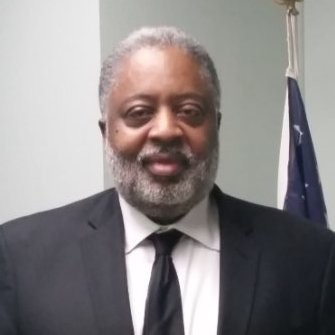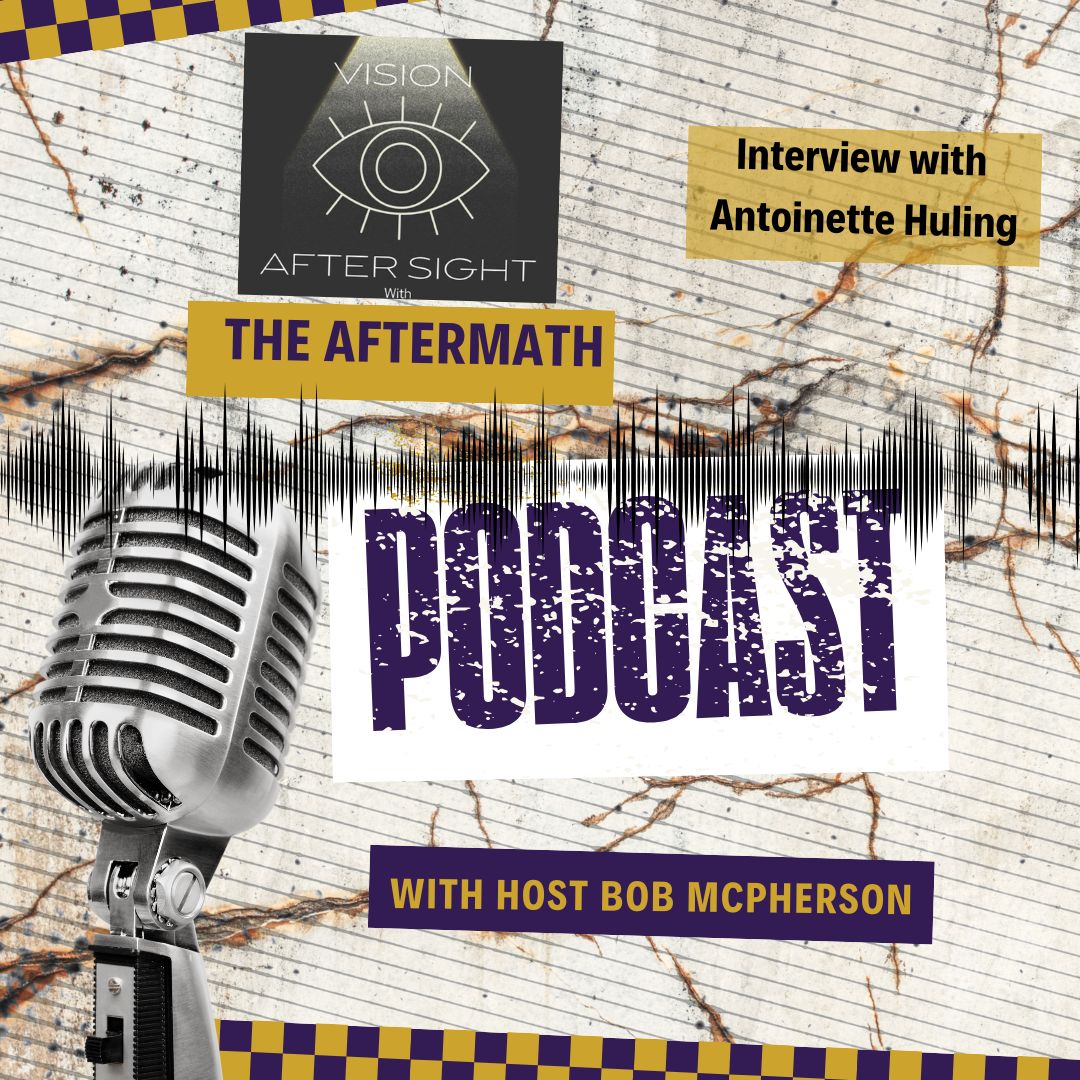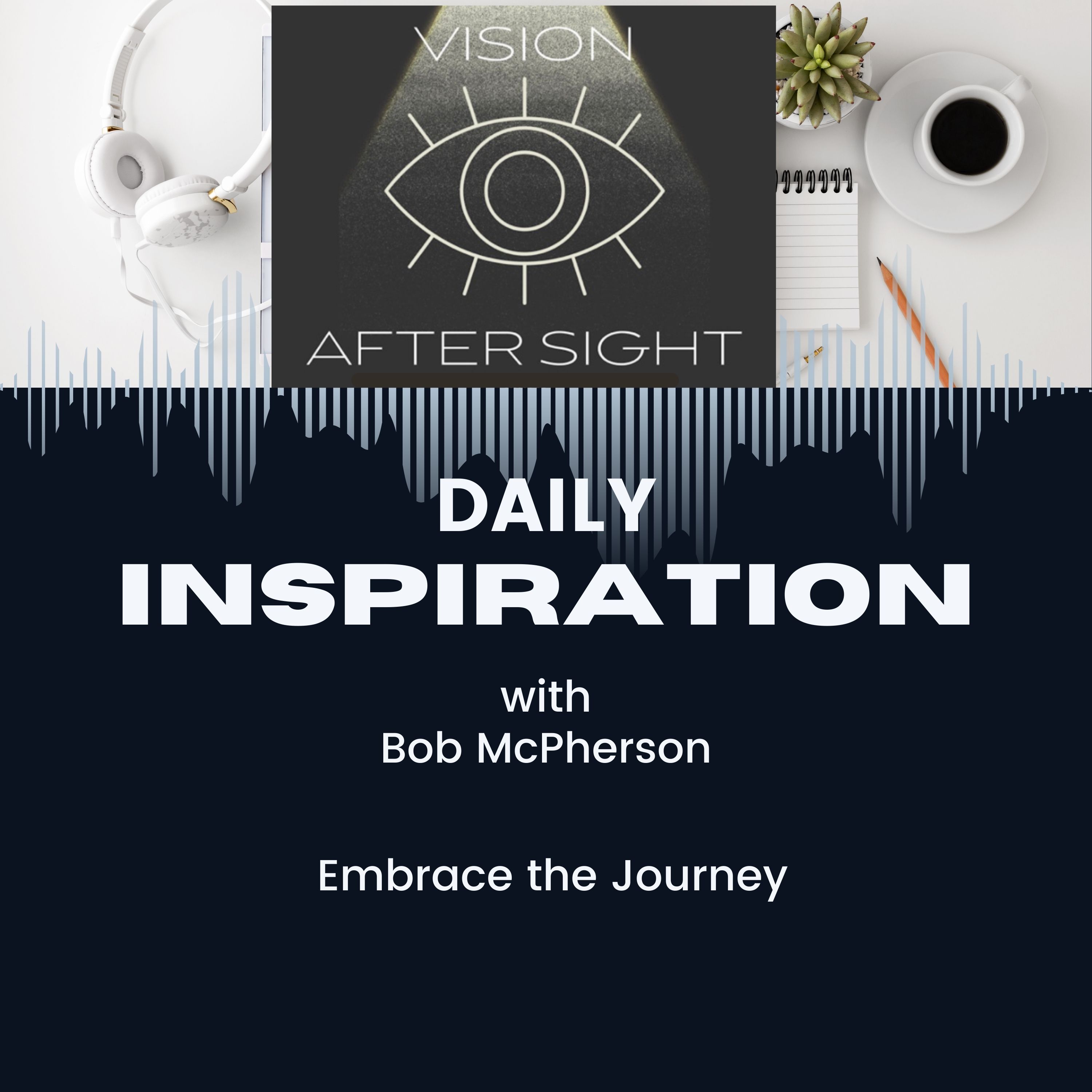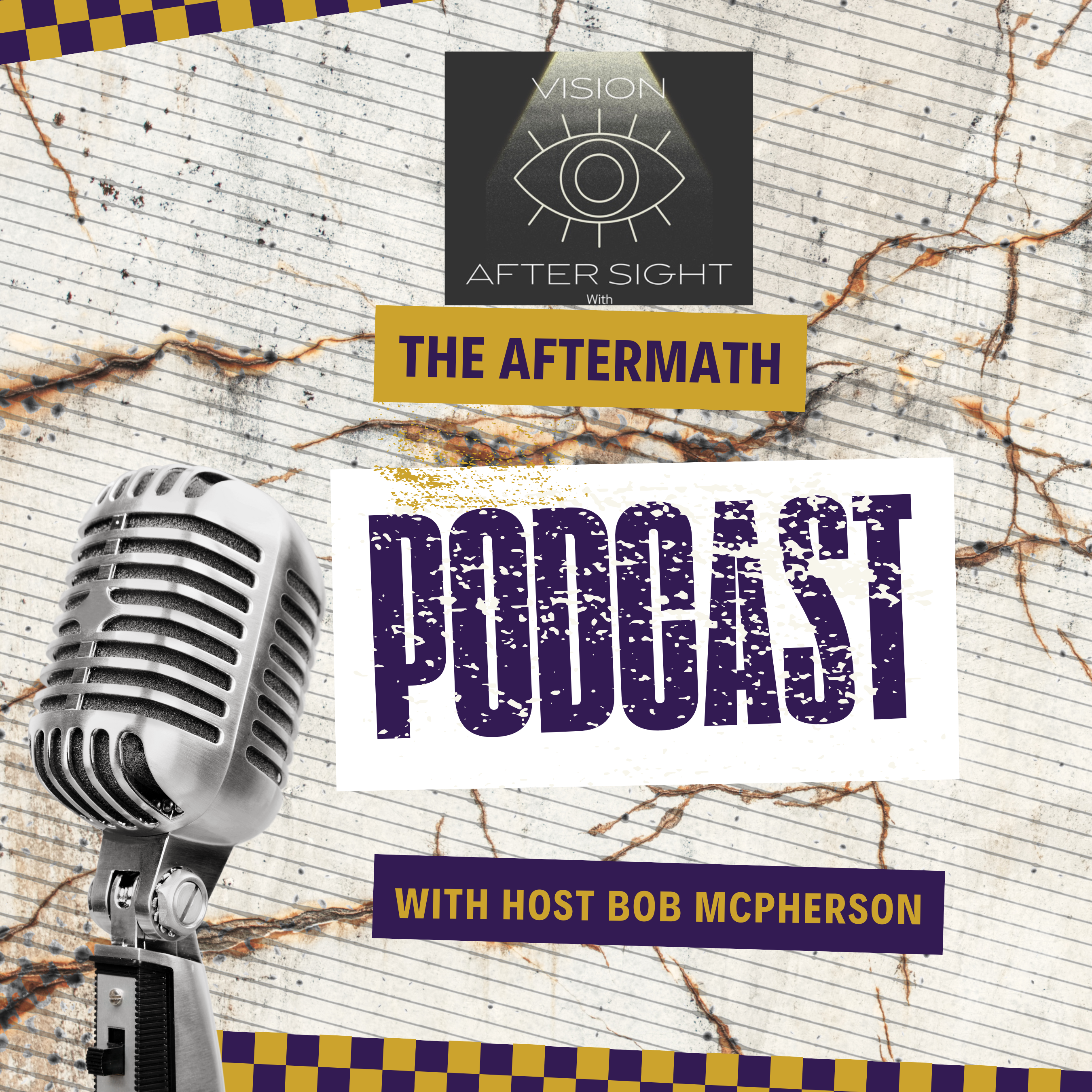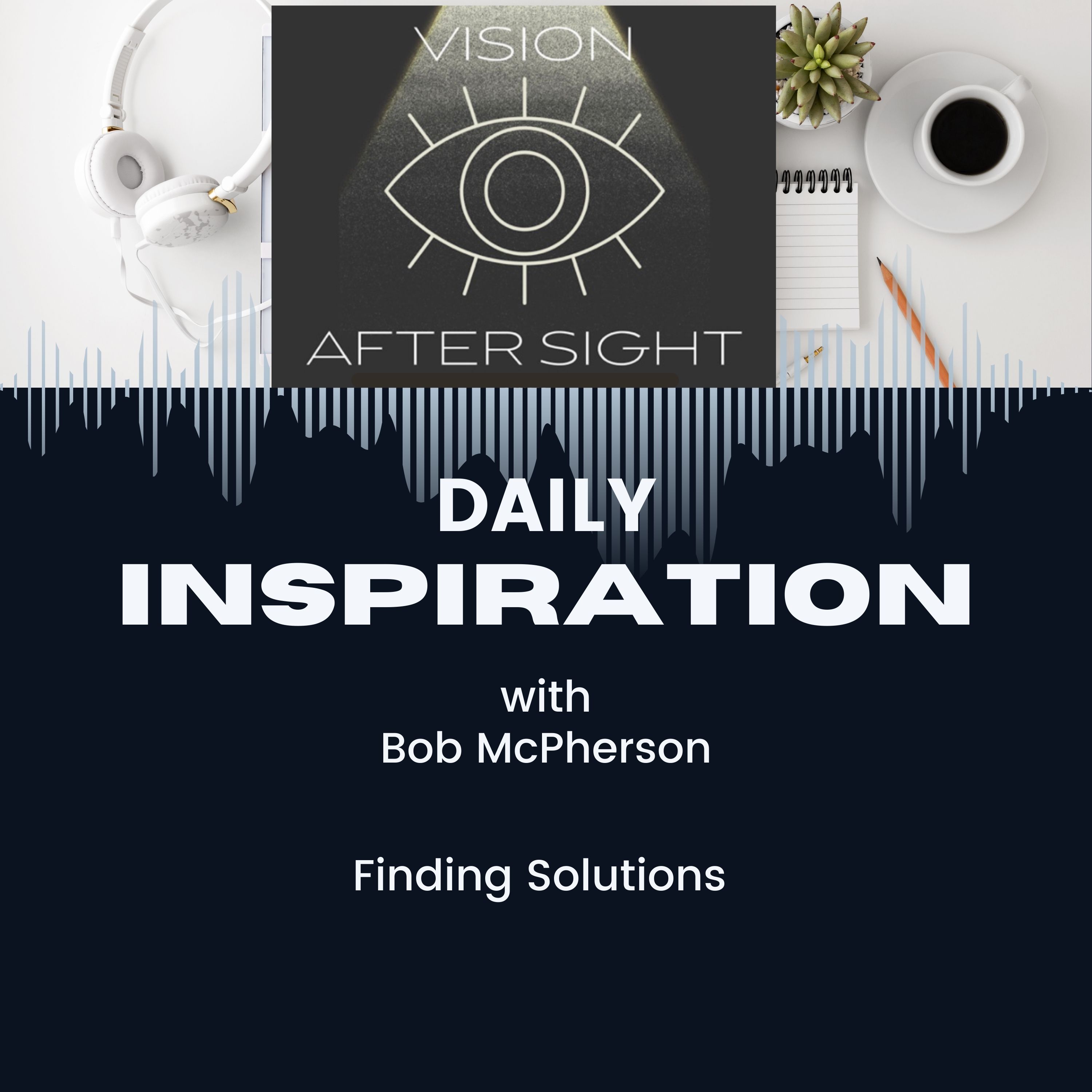Episode Transcript
[00:00:00] Speaker A: Welcome to another powerful episode of Vision after Sight, a podcast designed to introduce people that are on some journey from sight to blindness. We have created a neighborhood where they can share information in a safe place. I'm your host, Bob McPherson. Today we have an incredible testimony of faith and divine purpose. Our guest, Antoinette Hugh Schooling is living proof that when God has a plan for your life, no obstacle, no tragedy can stand in the way of his purpose. At the age of 17, Antoinette faced what should have been the end of her story. She was shot three times in the head. But God said, I am not finished with you yet. In Jeremiah 29:11, the Lord declares. For I know the plans I have for you, declares the Lord. Plans to prosper you and not to harm you. Plans to give you hope and a future. Antoinette's journey is one of divine restoration, proving that even when we make our own plans, God's purpose will always prevail. Her story is one of faith over fear, purpose over pain, and. And a future that only God could.
[00:01:21] Speaker B: Welcome to another episode of Vision After Sight, the Afterman. Today we have Antoinette Huling with us.
Antoinette, how are you today?
[00:01:33] Speaker C: I'm doing just fine, thank you. How are you?
[00:01:35] Speaker B: I'm wonderful. Antoinette, what's your eye status? Are you excited?
Do you have a partial sight loss or are you blind?
[00:01:45] Speaker C: No, I'm totally blind. Actually, I have a prosthesis in my right eye and my left eye. The entrepreneur was severed.
[00:01:53] Speaker B: Okay. Now, when did you start on this journey to sight loss?
[00:01:59] Speaker C: I lost my sight in 1991 due to a gunshot.
[00:02:04] Speaker B: A gunshot?
[00:02:05] Speaker C: Yes, I was shot three times in the head.
[00:02:07] Speaker B: Wow. And survived?
[00:02:08] Speaker C: Correct.
[00:02:09] Speaker B: God is good.
[00:02:10] Speaker C: Yes, all the time.
[00:02:11] Speaker B: And so now how long. So you went from being excited to waking up unsighted, or was it a gradual thing?
[00:02:24] Speaker C: No, no, it was actually. I went to. It was the last day of school, actually. I was 17 at the time and myself the next day in the hospital.
[00:02:33] Speaker B: All right, and so now for your accident, you had some gold and plans for your life?
[00:02:40] Speaker C: Yes, I did, actually. I was that following weekend after school graduation to go to the police academy.
[00:02:47] Speaker B: To the police academy.
[00:02:49] Speaker C: Correct.
[00:02:49] Speaker B: Okay. And so obviously those plans were delayed. Are you doing anything in law enforcement now?
[00:02:58] Speaker C: No, I'm not doing anything in law enforcement, but computers. I'm a certified computer programmer and I work for the Internal Revenue Service program.
[00:03:07] Speaker B: So now.
So you lost your eyesight very young in life now, between the time of your accident to your first major accomplishment as a blind person?
[00:03:24] Speaker C: Well, I. I had a son, but.
[00:03:27] Speaker B: That'S a Big blind person.
[00:03:30] Speaker C: Right. Other than having a son, married. And I was working for the Department of Human Services and I worked out there in executive offices for. Prior to them letting me go on maternity leave. And after that. I'm sorry, before that I went to Lionsworth Services for the Blind in Arkansas, and that's when I got a job with the Internal Revenue Service and I stayed in Nashville, Tennessee.
[00:03:51] Speaker B: So not only did you lose your eyesight, but.
[00:03:56] Speaker C: Yes.
[00:03:56] Speaker B: Okay, so you went to Arkansas, then you went to Nashville, and now you're back at home in Detroit.
[00:04:02] Speaker C: I'm back at home in Detroit, but I did in between time visit other cities, but I only worked in Nashville, Tennessee as well as in Arkansas and back into Detroit. Okay. I worked in Detroit as well.
[00:04:15] Speaker B: Now you say that you have a child.
[00:04:18] Speaker C: Yes, I do. He's 13.
[00:04:19] Speaker B: He's 13.
[00:04:20] Speaker C: Yes.
[00:04:21] Speaker B: Now, as a parent, how does your blindness affect your parenting, do you think?
[00:04:30] Speaker C: You know, actually in the beginning it was challenging because I questioned myself. I didn't think that I would be an adequate mother because of the fact that I did not have sight. But I fell back on my belief and faith in God as well as the, the things that I was instilled in growing up as a child. And that's what I instill in my son now because he is legally blind himself. And I'm teaching him the same instillment, instilling in him the same things that I was taught growing up as a child.
As a sighted child, As a sighted child. Yes. And now I'm teaching him even though he does still have vision because he wears glasses. I'm teaching him how to cope and be self sufficient and to live as a blind person. Because he doesn't never know when he may lose his sight completely.
[00:05:22] Speaker B: Absolutely. And I believe that blindness is truly a lifestyle.
So like every lifestyle, you have to learn that lifestyle. And blindness being a lifestyle, you have to learn. And so in my journey, I interact with blind people so that I might learn how to be blind from people that are experts at being blind.
[00:05:46] Speaker C: Right.
[00:05:47] Speaker B: Okay. So now if you had to advise your six months outside of your accident today, what bit of advice would you give them?
[00:06:05] Speaker C: Well, I would tell anyone that's newly blinded. And even though I'm not newly blinded, I've been blind for a while now. I still have issues, trials and tribulations. But I have learned through my growing in blindness that blind don't let blindness determine you or your lifestyle. You lean back and fall on the beliefs that you knew growing up, you know, being sighted as well as unsighted. But the main thing I would say, don't let your blindness determine your lifestyle and strike structure you and how what and what you can and cannot do. You determine your own lifestyle. Don't just live because society is telling you that you can't see and you can do certain things and you can't do certain things. You prove society wrong and let them know that you can do anything that a person with sight can do.
[00:07:02] Speaker B: So you set your heart to doing things, not your eyes, right?
[00:07:07] Speaker C: You set your own goal for yourself. And you know, you learn to depend upon yourself. And like you, you know, listen to and learn from other blind people or people that's in your situation. But don't just let society determine what you can and can't do.
[00:07:26] Speaker B: Now what did you do today?
[00:07:29] Speaker C: Right now I'm teaching computers. I'm a certified computer programmer instructor. I'm teaching computers at the Searching center on the east side of Detroit.
And also I do a freelancing computer work as well. And like I tell any and everyone, I don't just work with the visually impaired or any handicapped. I teach anyone and everyone that wants to learn because I was once in that predicament that I did not know. So why not pass on the knowledge that I know about computers to other people?
[00:08:03] Speaker B: And sharing is caring, right?
[00:08:05] Speaker C: Sharing is caring.
[00:08:06] Speaker B: Absolutely.
[00:08:06] Speaker C: Yes.
[00:08:07] Speaker B: And so you mentioned the Searcy center, correct? What is the Searcy Center?
[00:08:12] Speaker C: The Searcy center is actually called the Searcy Career and Development center. And they're like a social support group for people with limited site as well as no sight. We meet once a week over there and we support each other in different aspects of life. And we're able to go on, go on and tell others and tell each other about our life challenges and tribulations, and we piggyback off of each other.
[00:08:41] Speaker B: Okay. Now, in your journey, have you participated with any structured blindness courses like the Michigan Commission for the Blind or any program like that?
[00:08:55] Speaker C: Yes, I went to the Training center for the Blind Academy, Michigan. I went there several times. And also I am a client with the Michigan Commission for the Blind, which is the Bureau of Services of Life now. So they changed the name. And I'm also in several different support groups and I do also motivational speaking, telling others about what I went through in the street struggles that I went through as a child losing my sight at the age of 17.
[00:09:23] Speaker B: Okay. Now, would you advise newly blind people to register with whatever state organizations in their state to help train people online.
[00:09:40] Speaker C: If if that service is available to you, Yes. I encourage that highly for you to get an encouragement and support from other peers, people that are in your predicament. Because I feel that a sighted person can't tell a blind person certain things about living in life because they're not in that predicament. So you need to reach out and find support groups within. If you're blind that are blind support groups or whatever handicap you have, you know you can lean on them and get advice from them and support from those different organizations.
[00:10:17] Speaker B: So now you mentioned a support group. So you believe. Are you suggesting that a support group are probably more valuable than those organized government run organizations?
[00:10:33] Speaker C: I would say they're both beneficial, but the support groups would be more beneficial because it's a one on one, hands on teaching from other people in your, in your own peer group, probably around your age bracket. And you can lean and depend upon them and you can offer your experiences and it's more so like sharing amongst the different organizations. If you're in an organization with a group in a setting such as like the Commission for the Blind, they'll just offer different, you know, resources for you to go to.
[00:11:12] Speaker B: Right.
[00:11:13] Speaker C: But within a support group, you have those resources there at your fingers and you're able to, like I said, lean upon each other.
[00:11:20] Speaker B: With similar experiences.
[00:11:22] Speaker C: Right? With similar experiences.
[00:11:23] Speaker B: How many support groups do you participate with now? Today?
[00:11:29] Speaker C: Right now I participate in five different support groups.
[00:11:34] Speaker B: Five in the Detroit area?
[00:11:36] Speaker C: In the Detroit area? Yes.
[00:11:37] Speaker B: Would you like to give each group a shout out on the podcast?
[00:11:40] Speaker C: Yes, I participate with Innovision blind support group. I participate in the Surgery center, like the blind and visual peer support group, the Helping Hand support group. They're told they're blind support group Open Arms, which is a blind support group group. And I also participate in Blind Help. Blind Help Blind support group. And that's a totally blind support group as well.
[00:12:08] Speaker B: And you also are involved with the Greater Detroit Agency for the Blind and Low Vision, right?
[00:12:16] Speaker C: Yes, I'm involved with the greater agencies for the blind.
I don't attend the support group over there as often as I should and would like to because of the topic of, you know, it doesn't, the time doesn't copy with the others, it conflicts. But I am involved with them as much as I am possibly able to, as well as I'm a member of the National Federation for Compliance.
[00:12:39] Speaker B: All right, now, in sort of wrapping this up, what advice would you give blind people that you run your life out?
Is there a quote of the day that you would give?
[00:12:58] Speaker C: Well, it's not so much as a quote. I would just tell people, you know, you're going to have life's challenges despite and in spite of your circumstances. But you need to be self sufficient and determined and know that you're able to do and accomplish whatever you set your mind to. And there again, I cannot stress enough. Don't let whatever disability you have determine you and your aspect of life. You set your own goal for yourself and you strive to achieve those goals as well as you strive to achieve much higher.
[00:13:33] Speaker B: I couldn't have said it better. Is there any questions you would have of me?
[00:13:40] Speaker C: No, sir, not at this time.
[00:13:41] Speaker B: All right. Well, we want to thank you for your participation. Antoinette, my friend.
[00:13:47] Speaker C: Yes. Anytime I can be of assistance, just let me know.
[00:13:50] Speaker B: Thank you.
[00:13:51] Speaker C: Thank you.
[00:13:52] Speaker A: Thank you for joining Vision After Sight the Aftermath with me, your host, Bob McPherson. I'm truly grateful for your company today. I hope our conversations provided you with insight, inspiration, and a deeper understanding of life beyond sight. Remember, strength is a journey and sharing our stories helps build compassion and meaningful connections. As I sign off, I encourage you to keep seeing the world in your own unique way. Don't forget to subscribe, comment and share. I'll be back soon with more stories. Take care. Until next time.
